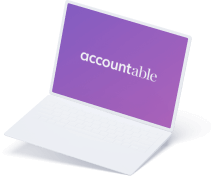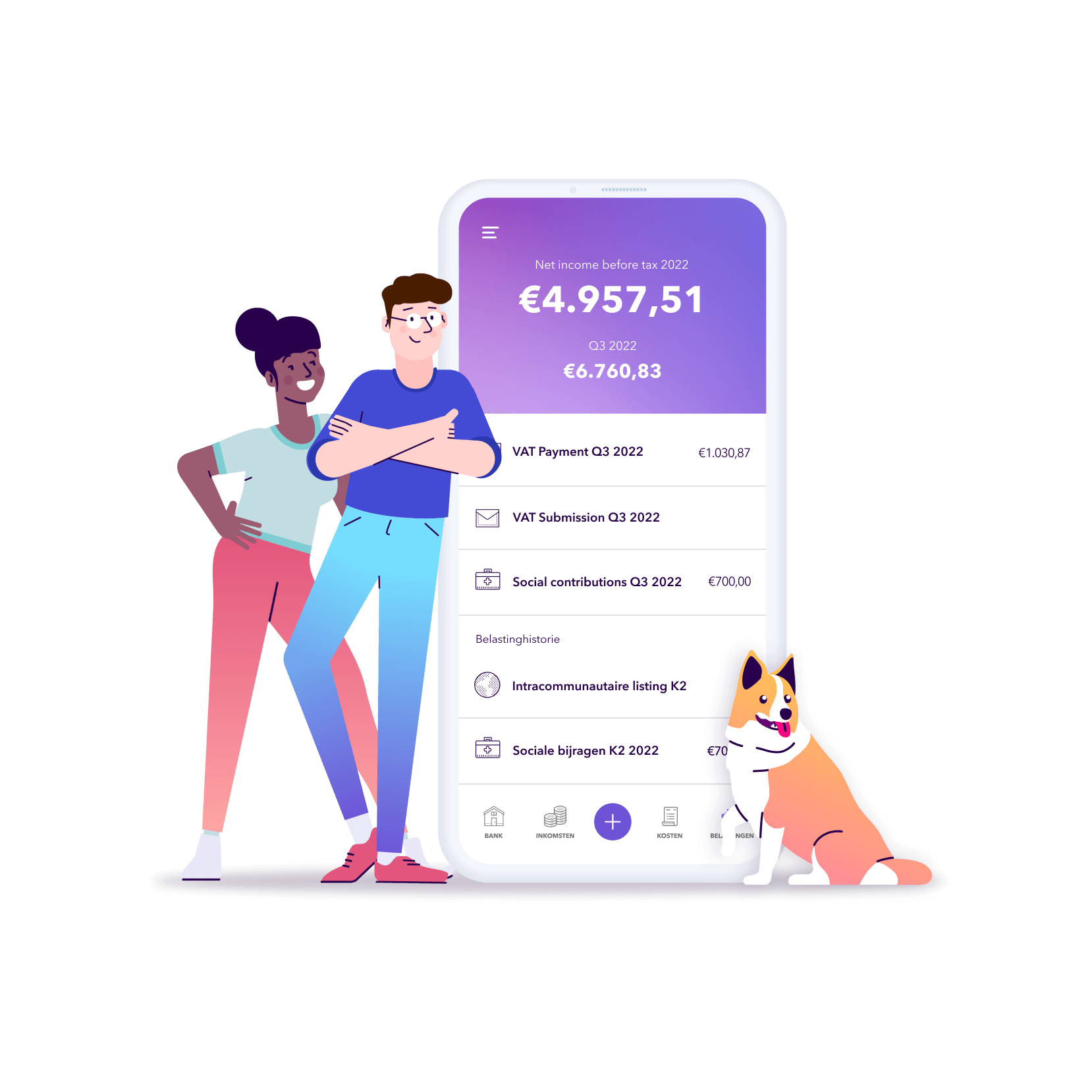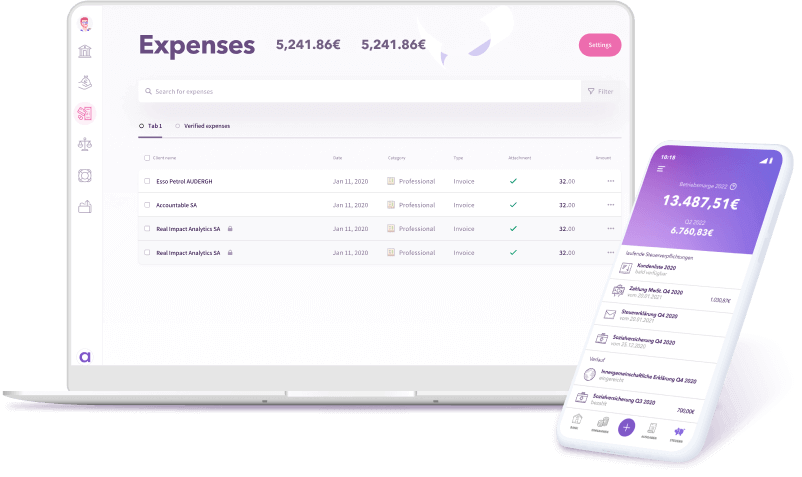
Travel expenses as a self-employed person: How to use the mileage allowance in your tax return
Read in 4 minutes
As a self-employed person or freelancer, you don’t always work from home. Maybe you have your office in a coworking space, regularly drive to client meetings or even earn your money with a self-employed activity that requires you to drive back and forth, such as Amazon Flex delivery. As a self-employed person, you can claim these travel expenses on your tax return. This article explains the tax regulations and how you can claim the mileage allowance.
Basics in tax law: advertising costs and business expenses
In tax law, a distinction is made between income-related expenses and business expenses. Both employees and self-employed persons can deduct travel to the workplace as income-related expenses. This is often referred to as the commuter allowance. This refers to the regular journey to and from the workplace.
Self-employed persons can deduct all other travel expenses as business expenses. These can be trips to your customers, your business trips, or all travel costs of employed staff. As a self-employed person, you can deduct all travel expenses that are higher than the flat rates in the area of income-related expenses as business expenses.
💡Tip from Accountable: If you’re unsure whether you can deduct something, our free advertising expense calculator will be happy to help. Just enter your business expense and get an answer in seconds.
Private or company car?
However, you must take into account whether the vehicle used is your private one or whether it is part of the business assets. The decision on this depends on the respective use. If the business use is less than 10%, then the vehicle is allocated to your private assets. From 10% to 50% business use, you alone can decide whether you want to include the vehicle in your business assets or in your private assets. If the business use is over 50%, then the vehicle belongs to the business assets and can be used as a company car and accounted for accordingly for tax purposes. In this case, you can claim the travel costs, but also other things such as insurance.
If the vehicle remains part of your private assets, you can deduct the travel costs as income-related expenses (commuter allowance). If you decide to include the vehicle in your business assets, the travel costs will be charged as operating costs.
How do I deduct travel expenses? Mileage allowance vs. business expenses
Mileage allowance
The simplest way to settle your travel expenses is with the commuting allowance. This can be claimed for expenses for the journey between home and the first place of business as well as family trips home, regardless of what means of transport you use. The mileage allowance, therefore, applies both if you travel by car and if you take a bicycle or use public transport. However, this flat rate cannot be claimed for air travel.
The flat rate is calculated as follows: each kilometer between your home and your first place of business is charged at €0.30. As of this year, you can also claim € 0.35 per kilometer for tax purposes from the 21st kilometer onwards. The actual working days in the respective calendar year are decisive for the calculation because you can only claim this flat rate once per working day. In total, you can claim up to € 4,500 for tax purposes in this way.
Business Expenses
If your travel costs exceed the maximum amount for the commuting allowance of €4,500, you can claim your travel costs as business expenses – even if the vehicle used is a private vehicle. In this case, however, you must provide evidence of the costs incurred. In addition to the expenses for fuel, this also includes the costs for vehicle tax, insurance, maintenance, and depreciation. The total costs are divided by the number of kilometers actually driven and an individual amount per kilometer is then calculated. This may well be higher than €0.30 per kilometer and you can claim an amount higher than €4,500 against tax.
If your vehicle is part of your business assets, then all your costs are counted as business expenses. In this case, you have to separate your private trips from business trips.
There are two ways to do this:
You can apply the so-called 1% rule. Under this rule, you are charged 1% of the official list price of the vehicle for its use each month as imputed income. For electric vehicles, only 0.5% of the list price is applied. With this regulation, all private journeys (e.g. also the vacation journey with the car) are covered and no further costs are incurred. However, this regulation can only be used if the share of business trips is over 50%.
As an alternative to the 1% rule, you can also account for the actual kilometers. For this, it is necessary that you keep a logbook. Every kilometer driven must be documented in detail with time and date.
💡Tip from Accountable: You can find more about the logbook here.
How do I deduct travel expenses with ELSTER?
Regardless of whether you decide in favour of the mileage allowance or claiming it as a business expense: You have to include it all in your tax return. If you submit your tax return via the ELSTER portal, there is space for the relevant details in the EÜR annex. You can enter motor vehicle costs and other traveling expenses in lines 81 to 86. The commuting allowance belongs in line 86. If your expenses exceed the commuting allowance, lines 85 and 86 are left blank.
How do I deduct travel expenses with Accountable?
Instead of ELSTER, you can also use software like Accountable. It is much easier for you since you only have to enter your expenses and Accountable will help you save it correctly and comply with the Finanzamt rules.
To do this, add a new expense. Under the category “Travel expenses” > “For the self-employed”, you can enter, for example, costs for bus and train, traveling to the office, but also flat-rate contributions, and mileage reimbursement. When using your vehicle, you can also record costs for insurance or leasing under “Vehicle”.
💡Tip from Accountable: If you want your complete bookkeeping and all tax returns in one solution, try the Accountable app. You keep full control over your taxes and finances and also get personal support from our tax coaches if you need help with German taxes.
Conclusion: Claiming travel expenses for tax purposes is worthwhile
It is definitely worth claiming travel expenses for tax purposes, as you can significantly reduce your tax burden. Whether you decide in favour of the flat rate or billing the actual costs depends on a number of individual conditions and the planned use. As a general rule, the use of lump sums significantly simplifies billing, but lump sums do not always cover all the costs incurred.
Flat rates can also lead to significantly more being paid than if the actual costs were recorded, for example, if private use is not desired because a second vehicle is available. With Accountable, however, you can manage your travel expenses easily and centrally in one place and always have access to your data from anywhere. Test it now for free!
Did you find what you were looking for?
Happy to hear!
Stay in the know! Leave your email to get notified about updates and our latest tips for freelancers like you.
We’re sorry to hear that.
Can you specify why this article wasn’t helpful for you?
Thank you for your response. 💜
We value your feedback and will use it to optimise our content.










